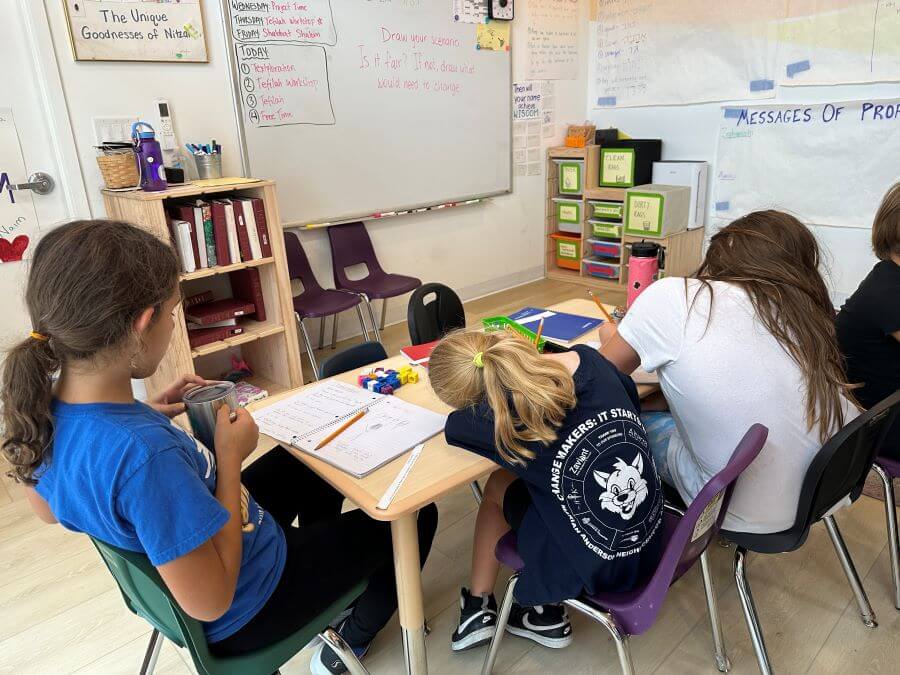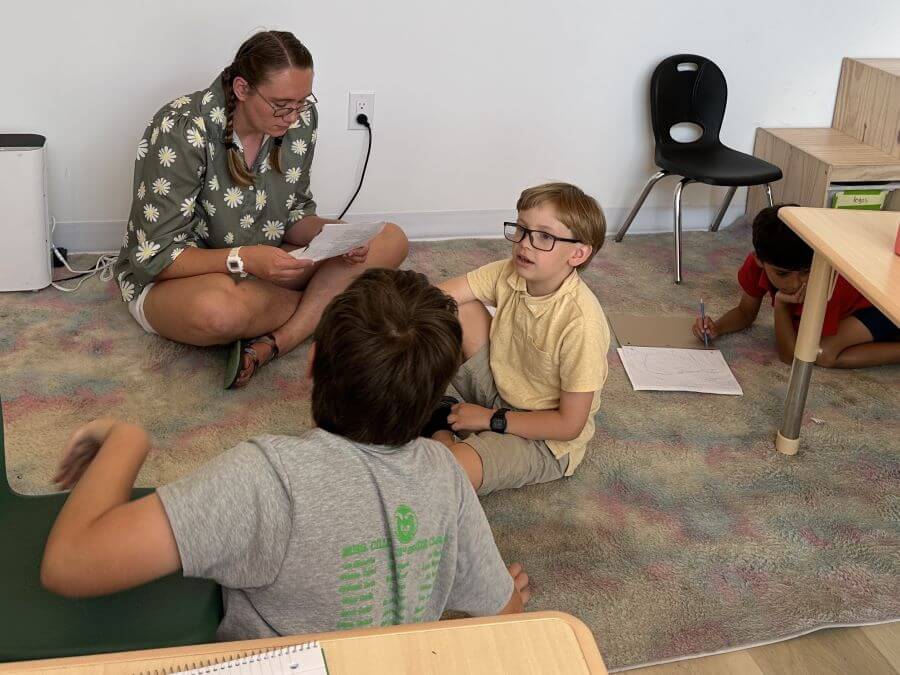
This fall at Makom, we’re starting out the year by doing a deep dive into tzedek, the value of justice. Tzedek comes up over and over again in Jewish wisdom, most famously in Deuteronomy 16:20, which calls upon us to view justice as something that “you will chase after, that you may live and own the land that Adonai your God is giving you.” All of Torah, but particularly the bits that instruct us to chase after justice, love our neighbors as ourselves, and care for the stranger, orphan, and widow, are not just words on a page, but a call to action. Through deepening our Jewish heritage, we are called on to become better neighbors and to act in ways that benefit those living around us. We can ask and answer questions about these texts all year long, but what truly cements and embodies an understanding of these values is putting them into action.
In my last Makom Community blog, I reflected on what Makom’s recent move from Sansom Street to Washington Avenue means for our community. In addition to making a home in our new space, we are gifted with the opportunity to connect to our larger community here in South Philadelphia. Makom is not an island, but a community that deeply intersects with the communities of people living around our space. Just like Torah is more than words on a page, our learning is not confined within the walls of Makom; our pedagogy of Jewish placemaking calls on us to enact the teachings of Torah in the world around us.
One of the challenges in learning directly from Torah is that much of the Jewish wisdom we study was either written or codified thousands of years ago and was addressed to a Jewish people that looked much different than our Jewish communities today. Thousands of years ago, the Jewish community was largely living together in one place and interacting with mostly Jewish neighbors. Many of our ancestors were farmers, and many of the mitzvot (translated literally as commandments, but viewed at Makom as opportunities to connect), in the Torah relating to tzedek involve setting up systems that those in an agrarian society can use to care for each other. It is the admirable job of my students to take those values of justice and caring for one another and figure out exactly how they can apply them in our lives as 3rd and 4th graders growing up in urban Center City and South Philadelphia. For example, one of our core texts for this unit is made up of a few verses from Leviticus chapter 19, which instruct Jewish farmers to leave the edges of our fields untouched, and to leave the leftover bits of our harvests for those who need to take freely. Even though our classroom is not made up of farmers, the Nitzanim learners concluded that there were still ways that we could enact these teachings here in Philadelphia.

Last week, our class took a field trip to the South Philadelphia Community Pantry, only three blocks away from Makom, just off the corner of 22nd Street and Washington Avenue. The community pantry is entirely volunteer-led, stocked by and for people living in the area—anyone is welcome to add food to the pantry, and our neighbors are always welcome to take free, nutritious food whenever they need it. My original plan was that on our first visit, the kids would take notice and inventory of what kinds of foods were in the pantry. We would then come back the week after, take another inventory, and compare the two in order to determine what kinds of foods our class and community should collect to bring to the pantry. What kinds of foods were disappearing the fastest? What kinds of foods did it look like our community members needed the most?
However, upon arriving at the pantry, we were surprised to find that it was completely empty. Some of the learners felt like we’d made the trip for nothing. Others were left to wonder: what was the point of a community pantry if there was nothing in it? A few of the other Makom teachers and I put our heads together to think of ways that we could keep our learners engaged with the project, prompting them to wonder why the pantry had been empty and to brainstorm ways that we could work to increase our community’s awareness of and usage of the space.
This week, we swapped our return trip to the community pantry for a conversation about what we had seen there the week before, and what we wanted to do about it. The learners began by connecting our work at the pantry to the systems of Jewish food-based mutual aid that we’d discussed over the previous week. For example, instead of leaving the corners of our fields for the less fortunate, as commanded of us in Leviticus, we would be taking some food to the pantry for the hungry in our community to eat. We then moved into a discussion of why we thought the pantry was empty, and the consensus from the learners was that people might not know that it was there! It’s off a main road, and, unlike other community fridges in the area, it’s rather small and grayish in color, blending right into the buildings around it. We surmised that if it was better advertised, more people might know that it was there, and would be led to drop off and pick up food from the pantry. The learners jumped into action, crafting dozens of signs signaling the presence and intention of the community pantry.

After the holidays, when we bring our community’s collected food items to the pantry, the Nitzanim will also hang up our homemade signs around the block, signaling to our community members that there is food for the taking, and hopefully drumming up more community awareness and support of the project. (Quick plug: Makom is still collecting food donations! There is a bin in our front entryway where you or your kiddos can drop off donations over the next few weeks. Canned foods, pasta, cereal, and peanut butter are all welcome donations.)
At the beginning of the week, our class read one of my personal favorite Jewish picture books, In God’s Hands by Lawrence Kushner and Gary Schmidt. Kushner and Schmidt retell a Jewish folktale in which a rich man believes that God is asking him to bake loaves of bread and leave them in the synagogue, and a poor man believes that God is baking him bread and leaving it in the synagogue, only to discover that instead of God helping them, they are actually helping each other. In helping their neighbors, their hands become the hands of God. Just like the men in the story, our students at Makom are learning to put wisdom into action. In leaving food for our neighbors, we are not only learning how to help each other, but also learning to become the hands of God.
